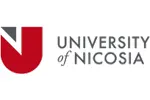

| The award | How you will study | Study duration | Course start | Domestic course fees | International course fees |
|---|---|---|---|---|---|
| BA | Distance | 4 years | - | - | - |
The BA programme in English Language and Literature aims to furnish successful students with comprehensive knowledge and skills relevant to such a double major, and to help them achieve their specialisation in Linguistics and TEFL (Teaching English as a Foreign Language) or in Literature. The programme therefore concentrates on three core areas: (a) Linguistics, by offering a comprehensive study of how language in general, and English in particular, actually works, (b) TEFL, by offering theoretical and practical courses in TEFL to allow students to pursue careers in teaching English, and (c) English Literature, by covering the great authors and issues from 1580 to the present day and by offering a detailed study of all genres: poetry, drama, and prose.
In addition to the knowledge and skills specific to the fields of English Language and Literature, the programme also aims to equip students with the necessary skills to undertake autonomous learning, to do independent research, and to use technology in appropriate and effective ways.
The courses of the literature component are designed to give a student an overview of developments within English Literature from the Early Modern Period to today. Through this chronological framework, the programme introduces students to many of the major figures and movements within English Literature and to the social and historical conditions under which works of literature were created.
Students are introduced to critical and theoretical texts and debates which surround the primary texts of the courses, thereby being allowed to place their own interpretations within a proper academic context and to understand the developments in critical thinking surrounding a text and within critical theory in general. This is achieved through the following required and concentration literature courses: Introduction to Fiction, Introduction to Drama, Introduction to Poetry, Shakespeare, Twentieth Century American Literature, Romantic and Victorian Poetry, Contemporary Literature, Gender in Literature, America in Literature and Film, Modernism/Postmodernism, World Literature in English, The Victorian Novel, Children Literature, Literary Theory and Criticism, Shakespeare on Stage and Film, Literature in Teaching, Memoir and Life-writing, and Authors in Context.
The courses of the linguistics component aim to provide the student with a thorough grounding of the principles underpinning the study of language, the diversity of linguistic study, and the social, pedagogical and cultural applications of such a study. Students therefore gain the ability to describe the language accurately in terms of its form and to account for its functions in real contexts of use, spoken and written, literary and non-literary. These aims are approached through the following required and concentration linguistic courses: The Science of Linguistics, General Linguistics, Applied Linguistics, Pedagogical Grammar, English Phonetics and Phonology, Intercultural Communication, English Morphology and Syntax, Semantics and Pragmatics, Sociolinguistics, Language and Identity, Discourse Analysis and Conversation, Psycholinguistics, and Historical Linguistics.
Finally, the courses of the TEFL component aim to provide students with the knowledge and skills relevant to the teaching of English as a foreign/second language. Students also gain practical experience by delivering lessons to groups of learners and learn how to integrate technology into the foreign language classroom. The required and concentration TEFL courses are therefore: TEFL I and II, Teacher Development in TEFL I and II, Computer Aided Language Learning (CALL), Practicum, Course Design and Evaluation in EFL, and Bi/Multilingual Education (CLIL).
These three main elements of the programme combine to give the student a thorough grounding in English Language and Literature and to develop within them a high level of competence in spoken and written English. These objectives are reinforced by courses in Research Methods, Sociology, Psychology, Ethics, Philosophy, World History and others most of which are offered as electives. In order to also enhance the career prospects and Europe-wide mobility of students, as well as giving them valuable practical experience of learning a foreign language, the core courses are supported by the study of two modern languages.
Overall, the programme aims to equip the students with the necessary knowledge and skills necessary for employment in fields associated with literature or linguistics/TEFL."
Career Prospects
The BA in English Language and Literature gives students the potential to pursue many career opportunities. These opportunities include:
The skills gained through the degree open up possibilities in many areas of the media and communications, including journalism, publishing, advertising, administration and PR.
Moreover, the nature of the programme and skills acquired are highly transferable to many apparently unrelated career opportunities. Students will have a high level of competence in English, the ability to analyse and assimilate data, conduct independent research, compile detailed reports, and formulate coherent, logical arguments; skills which many employers find attractive. Graduates from such programmes have found employment in areas such as the academia, arts administration, the law, the media, management, research and writing, politics and public relations, social work and social administration, librarianship and information services.
Access to Further Studies
Graduates of the programme can be accepted into Second Cycle degrees (Master's Degree).
Contact University of Nicosia to find course entry requirements.
Below are some suggested courses at other providers that you may also be interested in:
Graduate Diploma of Engineering (Mechanical) Graduate Diploma
Engineering Institute of Technology
Find out moreInternational Development (Urban Development) Graduate Diploma Graduate Diploma, Graduate Diploma
University of Birmingham
Find out moreGraduate Diploma in Strategic Communication Graduate Diploma
University of Technology Sydney (UTS)
Find out moreIf you do not meet the entry requirements for this course then consider one of these courses from another institution:
There are 135 other courses listed from University of Nicosia. A selection of these are displayed below:
Architecture - Concentrations: 1. Sustainable Architecture, 2. Interior Architecture MA
University of Nicosia
Find out moreJoin the StudyLink email list and never miss a chance to turn your study abroad dreams into reality!

Find out more about studying in Cyprus